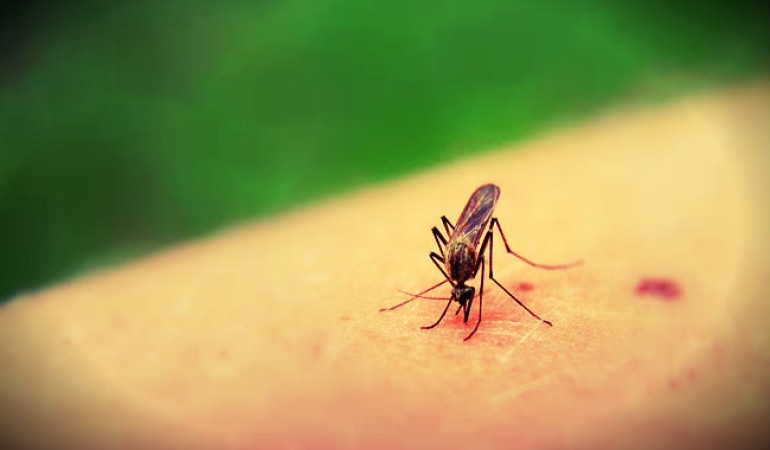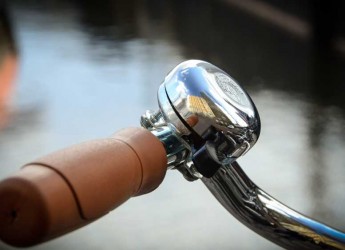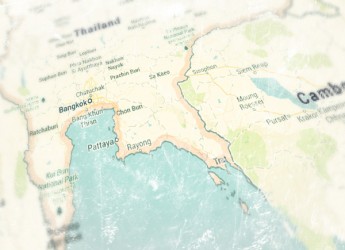7 Tips for Avoiding Mosquito Bites
Annoying as they are Mosquitoes are a part of life if you stay in Thailand. Here’s are a few ways for avoiding Mosquito Bites
Let’s face it, living in Thailand it’s almost impossible to avoid mosquitoes and although you may, over time, learn how to accept them and not turn into a flailing mess each time you get bitten there are some ways that you can avoid getting bitten in the first place.
Why Do Mosquitoes Bite?
Understanding why mosquitoes bite you in the first place may help you better understand how to protect yourself.
Several factors combine to determine how attractive you are to most mosquitoes. These include temperature (body heat), Carbon Dioxide, lactic acid, moisture, dark surfaces and fruity smells.
Research suggests that genetics also seem to play a large part in whether mosquitoes are going to bite you, but that may work in your favour. Try sitting close to someone that mosquitoes adore, that way you’re less likely to be bitten.
FACT: ONLY the Female mosquito bite. As disgusting as it sounds you blood is a high protein source for her developing eggs.
How to Prevent Bites
I’m sure that there are hundreds of products on sale promising to scare the bejesus out of mosquitoes and have them flying for the hills faster than a F14 jet but here are a few tried and tested things that actually work.
1. Use a Natural Mosquito Deterrent
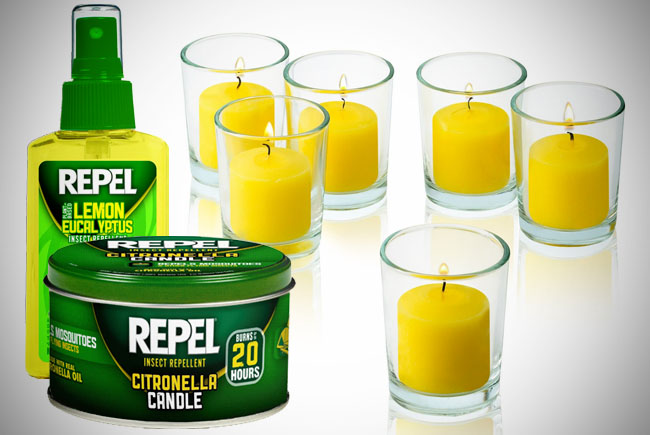
Citronella has been used for generations in the war against insects and while not as effective as DEET it is more natural and not likely to melt the clothes off you body.
It comes in the forms of candles, sprays, oils and burnable incense sticks. Candles can blow out easily so put them inside of small glasses to protect them from breezes. Mosquito coils are a good for putting under the table where they can gently smolder away for several hours providing protection for your legs and ankles.
Other effective plant extract deterrents include:
- Lemon Eucalyptus Oil
- Cinnamon Oil
- Rosemary Oil
- Lemongrass Oil
- Cedar Oil
- Peppermint Oil
- Clove Oil
- Geranium Oil
2. Electrocute the Little Suckers
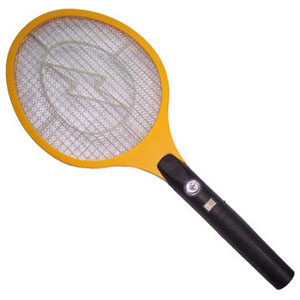 Zap those mosquitoes to death with the ultimate electric tennis racquet. One of the most effective ways to kill mosquitoes in your immediate area is to whack them with one of these electric swatters. Watch them splutter and burn when they touch the electrified rails.
Zap those mosquitoes to death with the ultimate electric tennis racquet. One of the most effective ways to kill mosquitoes in your immediate area is to whack them with one of these electric swatters. Watch them splutter and burn when they touch the electrified rails.
These wands are readily available in the locals stores for just a couple of hundred baht (the equivalent of a few euros each) and are rechargeable, just plug the handle into the power socket.
They even come with a built in flashlight. Why! I have no idea as it’s unlikely to help you catch the things. Maybe it’s supposed to attract the mosquitoes but normally it just serves to drain the battery quicker. But apart from that these are great little swatters that can provide hours of fun.
3. Cover Up
Wearing long clothing can go some way to protecting yourself from biting mosquitoes. Use light fitting, breathable fabrics such as cotton. Although this can go a long way to protecting you mosquitoes will occasionally bite through fabric if it is thin enough and resting against the skin.
4. Wear Light Coloured Clothing
Bear in mind that mosquitoes are attracted to dark colours. Why? It’s probably a survival instinct as they are better camouflaged by blacks and browns and therefore less likely to be spotted by predators and killed. So wear something white to discourage them from landing on you.
5. Use a Mosquito Trap
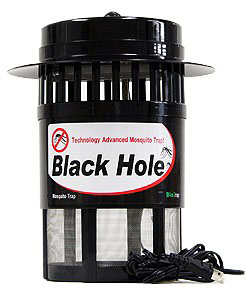 There are plenty of electric mosquito traps available on the market. Some of the most effective are the ones that target the insects by using carbon dioxide and heat to attract them.
There are plenty of electric mosquito traps available on the market. Some of the most effective are the ones that target the insects by using carbon dioxide and heat to attract them.
The Black Hole is one such mosquito trap. There are two UV lights in the top of it that attracts flying insects. The ultra violet rays also activate the Titanium Dioxide coating below it that then produces small amounts of Carbon Dioxide that attracts mosquitoes. Once they have flown into the top hood an electric fan sucks them into the entrapment cup below where they eventually die. Its not cheap and may not be the easiest trap to clean but it does appear to do a good job of catching those pesky indoor mosquitoes.
Industrial strength traps are available for use in the garden. These will normally use an external butane or CO2 canister. Colonies are depleted gradually over several weeks.
Because these are an effective mosquito attractor it is best if they are situated some way from the property (ideally between the mosquito colony and the house) otherwise you’ll have hoards of mozzies chewing on your arms and legs all night long.
6. Watch What You Eat
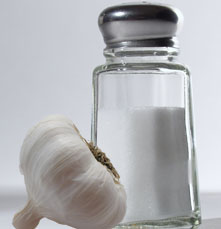 Certain foods can lead to your body producing more lactic acid thus making you a more attractive target for mosquitoes.
Certain foods can lead to your body producing more lactic acid thus making you a more attractive target for mosquitoes.
Try to avoid salty foods and those high in potassium. While it’s easy to recognise salty foods knowing which ones are high in potassium is a little harder and unfortunately it includes many fruits and vegetables which are very healthy.
Eating garlic may offer some mild protection from bites but eating too much may not be good for your social life. While garlic has many medicinal properties smelling nice is not one of it’s selling points. Having it ooze out of every pore in your body when you sweat is not a pleasant experience for anybody standing close to you.
7. Remove Sources of Standing Water
Mosquitoes lay their eggs in standing water. This can mean ponds and puddles outside your house but you shouldn’t overlook sources within your home such as plant water and drains. Have a check around your garden for stagnant water such as in pots, buckets, flower vases and old tires.
Having flowers in your house is a common practice and although they may smell nice and look beautiful there is always a risk that some sneaky little mosquito will want to lay her eggs there.
There are a couple of things that you can do in these circumstances such as changing the water regularly (this also prevents the water from going stagnant and killing off your flowers) or adding a few drops of olive oil to the water which creates a impenetrable layer on top so that the mosquito cannot lay its eggs.
Should you Use DEET?
Developed by the Americans just after the second World War, DEET (or N,N-diethyl-m-toluamide) is very effective at repelling mosquitoes. It seems to do this simply by masking the smell of CO2 and lactic acid so that the mosquitoes don’t see you as an attractive meal.
It should be noted that DEET does dissolve certain plastics including Lycra and some breathable fabrics and as such is better suited to being sprayed on cotton clothing. Long term use of DEET is probably not advisable and you should always wash your skin when you are back indoors.
How to Stop the Itching
If all else fails and you end up getting bitten why not try one of the following natural methods to stop that annoying itching and reduce the swelling.
- Apple cider vinegar
- Calamine lotion
- Witch Hazel
- Salt water (take a quick dip in the sea if it’s nearby)
- Warm / hot water (take a hot bath)
- Cold pack
- Mild soap and water
- Tea tree oil
- Aloe vera gel
- Bite treatment creams such as Stingose, Aspivenin and After Bite
- Oatmeal paste
A Final Reminder
Wash off any repellent once you get back inside. Long term exposure to some of these powerful chemicals may not be good for you.
